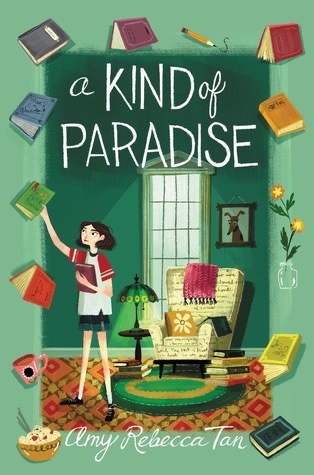
Goodreads
As I’ve gotten older, I’ve gradually made the shift from consuming content targeted at young children to content for young adults. As an avid reader, this means getting excited about the newest young adult (YA) dystopian romance novel and less so about a family-oriented, adventure-driven kids’ book. However, I find myself increasingly disheartened by the more “grown-up” books I’m reading. I would much rather read a Percy Jackson spin-off than an angsty teen novel about growing up. I’m not saying that I dislike literature meant for more mature audiences; I can enjoy a meaningful commentary on life and society as much as the next person. But to me, the popular literature targeted at my age group is increasingly less appealing, so here’s my case for appreciating children’s books as teenagers, in the context of my favorite children’s books.
Children’s literature (when executed correctly) provides stories that are insightful regarding complex ideas such as family, friendship, and social justice while still remaining optimistic and hopeful. There’s something endearing about reading a book about a ten-year-old learning to stand up for what they believe in. It was inspiring to me when I was ten years old and it still is, now that I’m sixteen. Front Desk by Kelly Yang, (still) one of my favorite books, is a prime example of this—it perfectly balances innocence, optimism, and societally relevant topics. The book follows Mia, an elementary school-age girl whose family has just immigrated to America, and their antics and struggles in running a motel in California. It’s laugh-out-loud funny but also deeply disturbing in its portrayal of the challenges faced by people of color in the United States. Mia is a spunky, lovable protagonist, and her narration showcases a sparkly outlook on life that seems exclusive to children’s literature. This ability of children’s books to address serious topics with hope and optimism is something that I deeply appreciate.
There’s also something oddly relatable about seeing younger characters overcoming their obstacles and growing from them. A Kind of Paradise is about a girl who learns to forgive herself for her mistakes with the help of a quirky cast of librarians. The Aru Shah series introduces the main character as a pathological liar who just wants to fit in. The classic Wonder tells the story of not only a boy with a facial anomaly but how it affects the people around him as well. In all of these cases, it’s inspiring to see these young characters face their challenges and come out successful. It makes me think about how I’ve grown from my problems and will continue to and also reassures me that there will always be at least some things that turn out okay. These old favorites are what I turn to in order to distract myself after a particularly difficult day when I need something hopeful that will cheer me up. Happy endings and personal success make me happy on days when I’d rather not read another gloomy picture of reality.
Speaking of depressing depictions of reality, another wonderful aspect of children’s literature (especially picture books, which you’re never too old for) is its ability to draw you into worlds that are bizarre yet logical in a way that very few YA novels can accomplish. I have yet to find a YA sci-fi or fantasy novel that is more fun than something like Cloudy with a Chance of Meatballs. The book version of the classic ode to food is actually quite different from the animated movie. I haven’t seen the movie in at least five years, but I rediscovered the picture book this past summer while shelf-reading at the library. After I got past the initial nostalgic gushing, I slowly reread it.
I was finally able to appreciate the sheer creativity of the premise. A dream town where food rains from the skies and the weather forecast predict the next meal—who wouldn’t want that to be reality? It’s such an amusing idea that I can’t help but be intrigued. The uncertainty of the ending—was Chewandswallow real?—only adds to the wonder. Reading this type of book is like a joyride or a piece of really good chocolate. I’m still a huge fan of dystopian fiction and how authors use it to convey something meaningful through a fictional world. Sometimes, though, you just need a lighthearted, fantastical book to literally pull you in, away from everything.
The next time I need a break, I think I’ll go to my bookshelf and flip through something that I got years ago. Maybe I’ll find an entirely new, weird, and wonderful world or rediscover an old favorite that I forgot about. Angsty teen dramas are for when I have enough energy to interact with the issues; when I don’t, I would rather adventure with dragons (Wings of Fire) or magical necklaces and lovable robots (Amulet). That warm and fuzzy feeling when the young protagonist has triumphed and their sparkly world, real or fantastical, is saved feels just as great every time.
